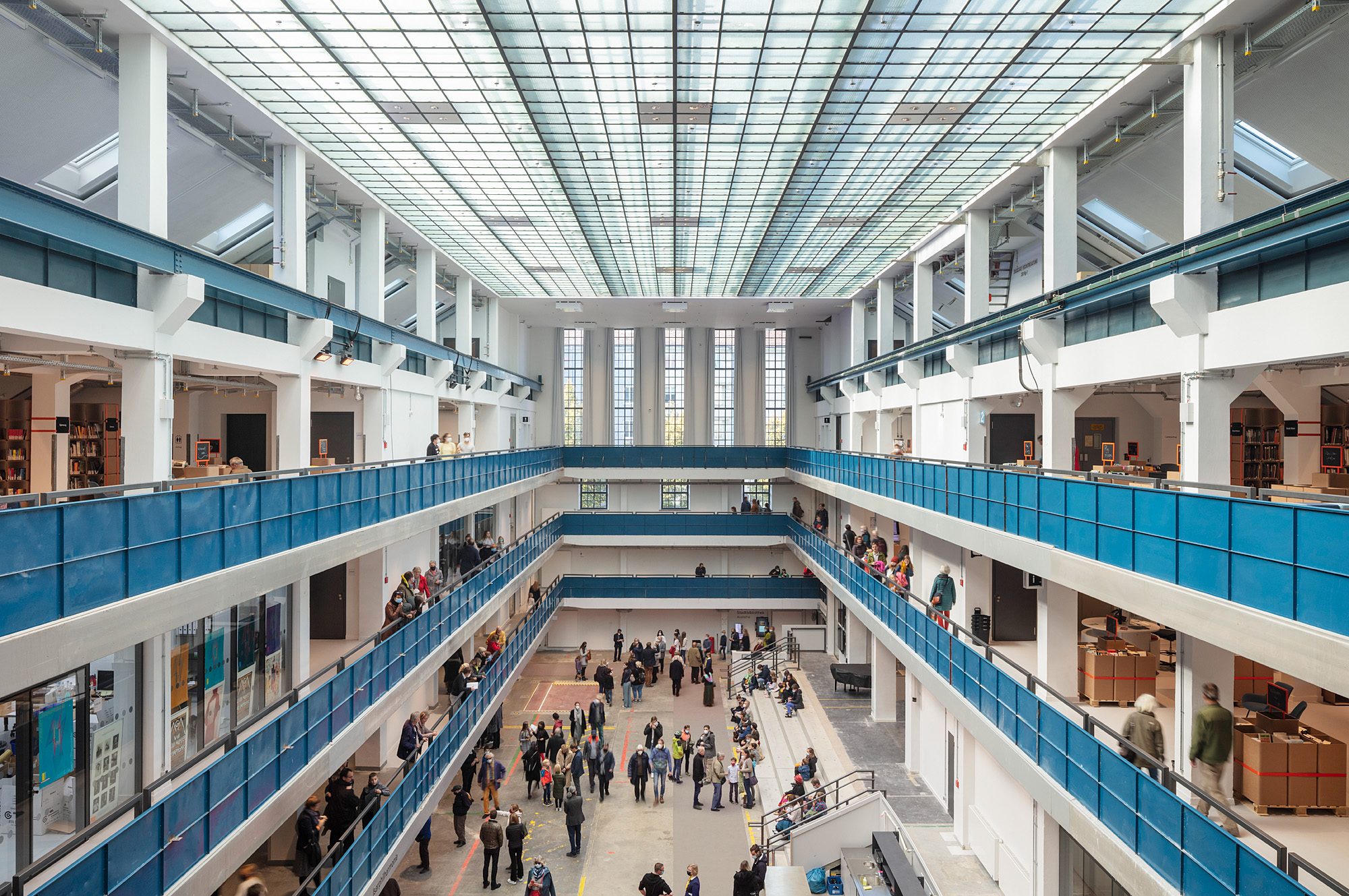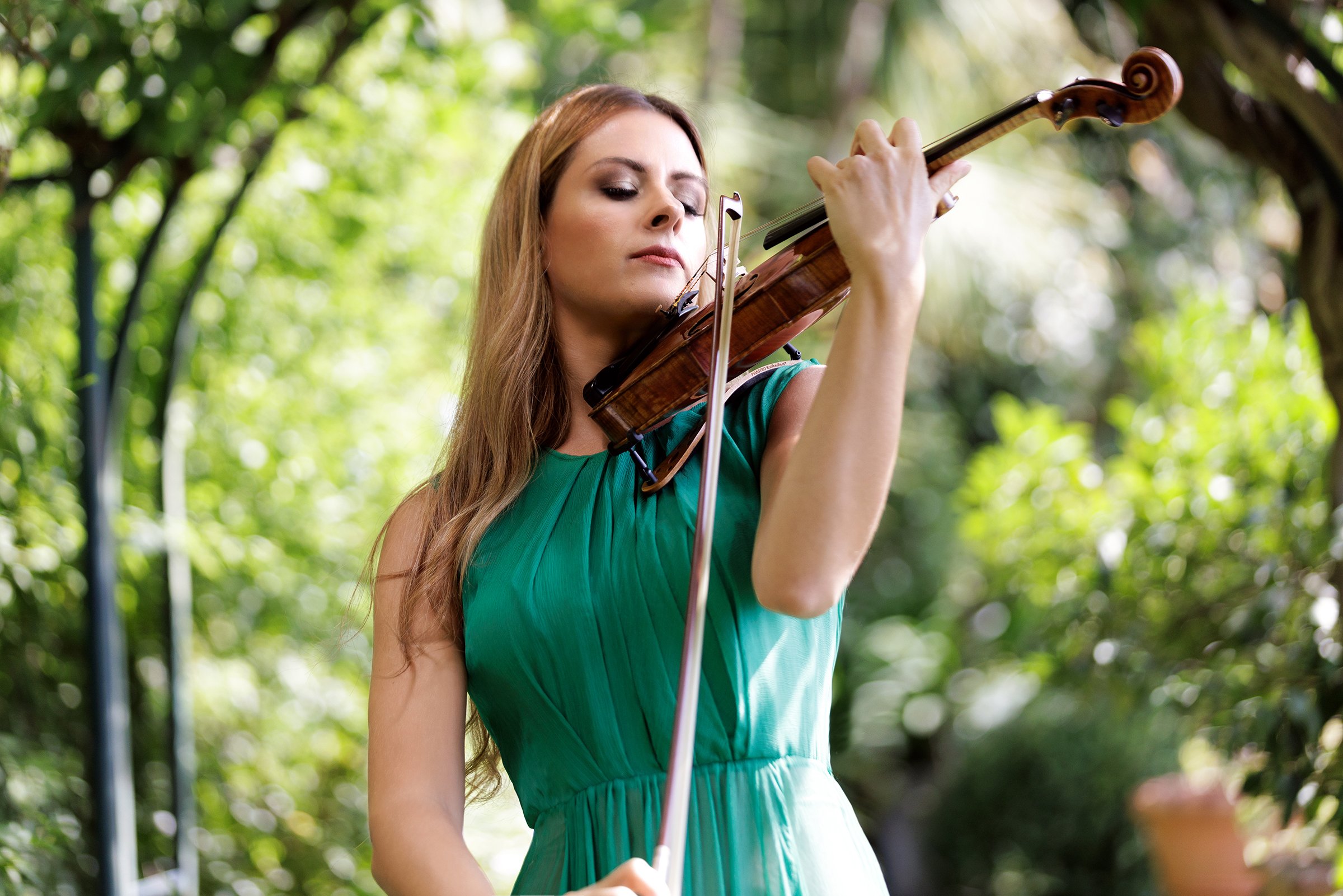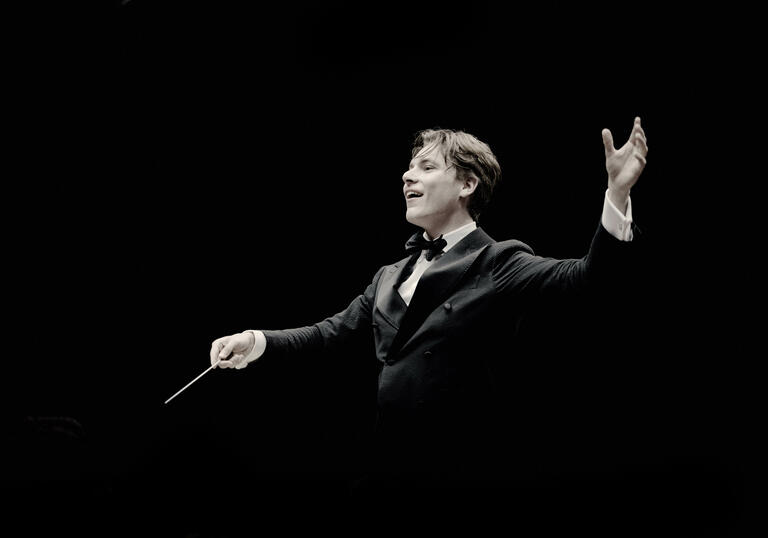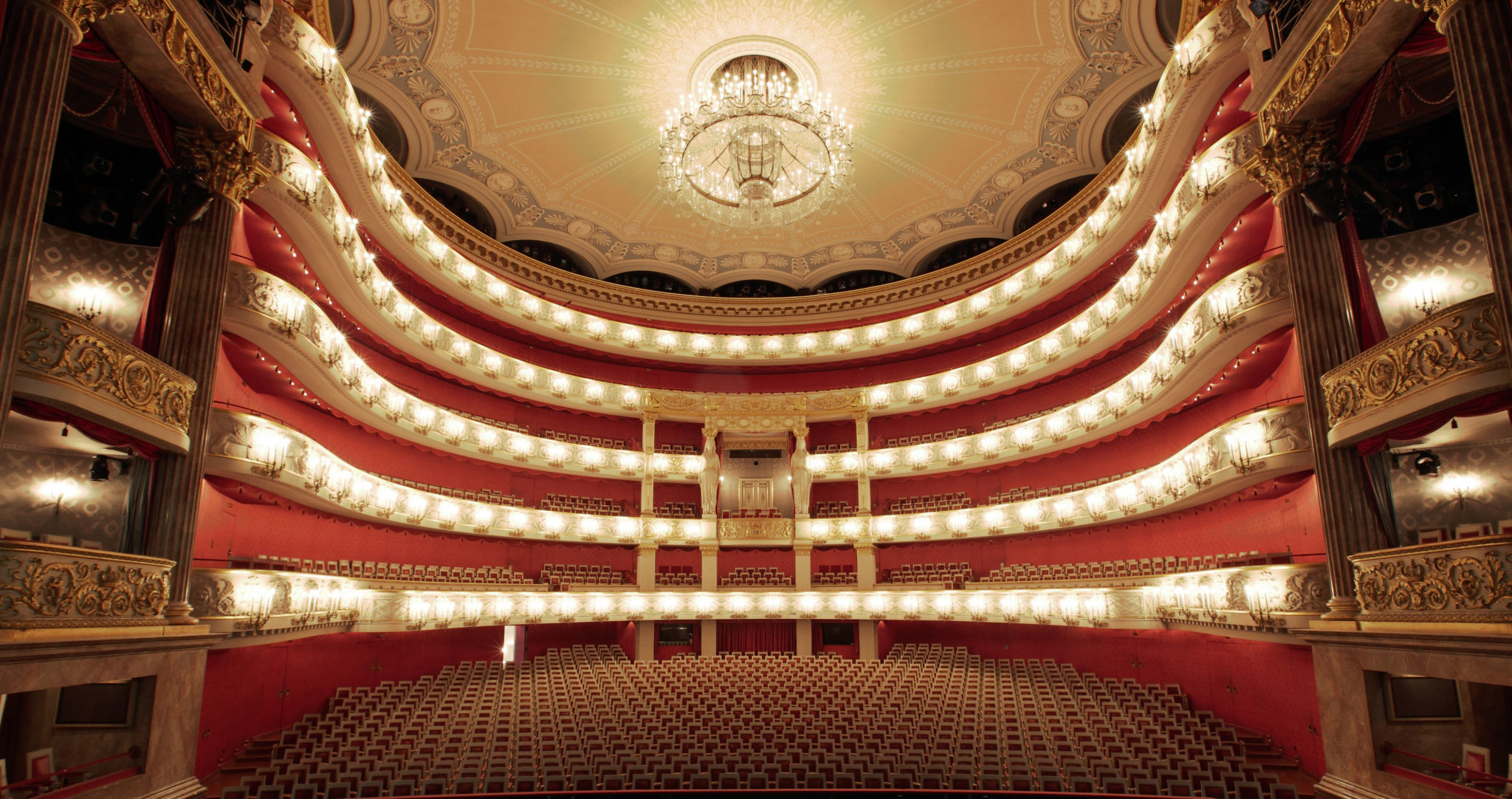|
|
Post by julesd68 on Nov 8, 2024 16:30:51 GMT
Bavarian State Opera, Munich. 31/10/24
Das Rheingold
Cards on the table chaps, I'm an absolute beginner when it comes to Wagner opera appreciation so will keep this relatively brief and talk about what I do know about.
Firstly, the venue is gorgeous, with first rate facilities.
For a full appreciation of the Hall's history -
The production proved to be uniformly superb, with a very modern and boundary pushing approach. The posters outside the Hall were deliberately most provocative, which gave us an indication of what was to follow. The sets were an intriguing and eclectic mix of traditional and modern, whilst costumes were all modern. Just to give you an idea of the visual impact, in Act 3 we see Alberich making sure his brother fashions the Tarnhelm on time - it's a modern workshop where we see an array of semi-automatic weapons on the wall and surveillance monitors on Alberich's desk to heighten his dark mental state. It's all very effective indeed. Poor Alberich, having been deceived by Wotan and Loge on the mountaintop then has to spend most of the rest of the opera absolutely stark naked. I kid you not.
Another radical decision was the use of prerecorded VT appearing on a giant screen (with orchestral accompaniment) to show Wotan's descent to Nibelheim. This saw him sitting on a plane, walking, riding the underground train etc all filmed with a sense of style and humour. Somehow it just worked so well.
The singers were all of the very highest calibre with absolutely no weak links at all. Just glorious. I was absolutely gripped by their performances throughout in conjunction with a very fine orchestra under Vladimir Jurowski. Even though we were at the back of the hall, the acoustic was perfectly observed, setting the vocalists in a huge soundstage with crystalline clarity. So good was the sound it managed a passing impression of stereo at times, especially with the harps positioned on either side of the orchestra under the boxes - this was miraculously effective.
Perhaps the very best was saved till last. Imagine a set of a huge Renaissance gilt covered cathedral altar piece on which the gods actually stand, as life size statues, whilst the assembled throng pays homage. It was nothing short of awe-inspiring, especially with the music reaching a sublime and potent apex. I will savour and remember this premium experience for sure.
|
|
|
|
Post by MartinT on Nov 8, 2024 16:57:42 GMT
The surtitles would have helped me a lot.
Glad you enjoyed it, Jules.
|
|
|
|
Post by Slinger on Nov 8, 2024 17:13:58 GMT
I'm really pleased you enjoyed it, Jules. Opera is an audiovisual medium, and is far more pleasing and (hopefully) engrossing when enjoyed "live" rather than just playing the audio, no matter how good the recording.
|
|
|
|
Post by julesd68 on Nov 8, 2024 18:46:12 GMT
I couldn't agree more Paul, there's no substitute for being there. I have to see Die Walküre next year.
|
|
|
|
Post by julesd68 on Nov 9, 2024 13:57:00 GMT
Isarphilharmonie, Munich - 1/11/2024
Richard Wagner
“Tristan und Isolde”
(2nd act, concert performance)
Sir Simon Rattle - conductor
Stuart Skelton - tenor (Tristan)
Lise Davidsen - soprano (Isolde)
Karen Cargill - mezzo-soprano (Brangäne)
Christof Fischesser - bass (König Marke)
Sean Michael Plumb - baritone (Melot)
Symphonieorchester des Bayerischen RundfunksI was very much looking forward to this performance, primarily to hear the BRSO under the baton of Sir Simon. The orchestra didn't let either of us down, delivering a highly charged, passionate and powerful performance with excellence as standard throughout the ranks. I have never seen Sir Simon so animated at the podium, it was almost as if he was turbo charged for the evening. I wasn't so pleased with the hall's acoustic however. Of course the venue could not be more different to the State Opera in which I enjoyed the sound so much. From my stalls seat near the front I found the sound was a touch sterile and lacking warmth. Perhaps the use of dark timber in the hall also doesn't help in some kind of psychosomatic way?  It's all a bit confusing but my understanding is that this Isarphilharmonie hall is a temporary home to the Munich Phil whilst the Gasteig is being refurbished, but it's also a temporary home to the BRSO who are awaiting a gleaming new hall of their own! One remembers that much was made of this and failed new London venues being a key factor in Sir Simon vacating London for pastures new. The multi-purpose nature of the "Gasteig HP8" complex and cultural centre in which the Isarphilharmonie hall sits is certainly admirable, but as I say, I wasn't won over by the acoustic. Here are some interesting details on the BRSO and Munich Phil "rivalry" of which their respective homes plays such an important part - www.telegraph.co.uk/music/classical-music/curious-case-munich-music-halls-german-profligacy-high-mindedness/ Unfortunately I also found the starring vocal duo somewhat disappointing. There was very little chemistry between them and too often Davidsen's voice failed to assert itself with the orchestra in full flow compared to the other vocalists - words just became sounds as I struggled to hear proper enunciation from her. I must say that I preferred the vocal performances of Karen Cargill, Sean Michael Plumb and particularly Christof Fischesser, who brought great presence and gravitas to the role of the King. It was interesting to note that the final reception for Davidsen and Skelton was somewhat subdued and perhaps not much more than "polite". Indeed the greatest applause unequivocally came for this potent orchestra who evidently relish working with Sir Simon, and I look to having a return encounter. 
|
|
|
|
Post by MartinT on Nov 9, 2024 14:12:51 GMT
I had not heard of this orchestra, Jules. Are they the permanent orchestra of that hall?
|
|
|
|
Post by julesd68 on Nov 9, 2024 16:40:55 GMT
That's the conundrum I was trying to explain Martin - that Hall is only a temporary home to both orchestras is my understanding!
|
|
|
|
Post by julesd68 on Nov 9, 2024 16:43:50 GMT
I've just double checked, the other orchestra sharing that hall at present is the Munich Phil, the resident orchestra of the Gasteig Philharmonic Hall. Founded in 1893.
|
|
|
|
Post by julesd68 on Nov 12, 2024 20:11:54 GMT
Barbican, London. 7/11/2024
London Symphony Orchestra - Daniele Rustioni Francesca Dego - violin
Franz Liszt - Les préludes Felix Mendelssohn - Violin Concerto, Op 64 Franz Schubert - Symphony No 9, The Great
I must confess to never having been a fan of the crowd pleasing Mendelssohn VC and so have traditionally given it a wide berth in the concert hall. But every now and then one needs to confront long held and rigid views, to see if the passage of time has revealed a fresh prospective. I also confess to knowing nothing about Ms Dego so it was good to make her acquaintance at her LSO debut in the venerable Barbican. This evening had the "get out of jail free" bonus of the monumental Schubert 9 should the VC persist in frustrating me.
The opening Liszt is a remarkable little work, a mini symphony that spans such a broad range of colours and textures in its fifteen or so minutes. It opens with an expansive sense of dark intrigue which builds steadily to herald a triumphal fanfare of brass, before giving way to a theme of wistful and melancholy romance. This is abruptly interrupted by a frenzied tension that has a cinematic quality to it, but fear not, a lone oboe restores harmony in the kingdom, followed by reassuringly warm and pastoral strings. The theme develops a carefree and playful sense of joy as the orchestra patiently builds to an extended climax, driven by that radiantly heraldic brass. It's really a very fine way to open the evening.
I thought Ms Dego quite understandably took a while to settle in the Mendelssohn. I must confess to subsequently feeling strangely uninvolved in her performance and would have loved her to have found some more warmth in her tone, which felt just too understated and somewhat detached for me. She performs in the manner of an old-school virtuoso, à la Heifetz, and it shows how much one has become used to more physicality and a sense of true involvement from the soloist. Saying this, gosh what a finale we got in the final movement! The handbrake was well and truly jettisoned, leaving free, joyful and uninhibited music making. With immaculate bowing, clean and nimble, the energy flowed and I saw Ms Dego begin to enjoy herself, as did I ... Her choice of encore however completely baffled me. It immediately reminded me of the obligatory extended guitar solo section at an old school heavy metal concert. An exercise in showing off "virtuosity" it missed out one important element - music. Playing as fast as possible just doesn't engage me, but others seemed to enjoy it.
Schubert 9, ah, the gift that keeps on giving ... You think the apex is those sublimely lilting Ländler like melodies of the third movement, which nearly outstays its welcome, but with the purity of the theme and free flowing dynamics, you stay on board. But then Franz has left something in reserve for the resolutely compelling final movement in which the LSO once again assert their deep quality. Maybe the brass sounded a little tired towards the end but overall this was a very satisfying and solid performance. A special mention must go to the very busy principal LSO oboe, Juliana Koch, who was supremely musical throughout the evening, and captured my imagination in all of her many solos. 
|
|
|
|
Post by MartinT on Nov 12, 2024 22:00:06 GMT
I'm not a Mendelssohn VC fan either, but I would have loved the Schubert 9.
|
|
|
|
Post by julesd68 on Nov 14, 2024 18:22:07 GMT
Barbican, London. 10/11/24.
Sibelius - Tapiola
Prokofiev - Violin Concerto No 2
Stravinsky - The Rite of Spring
Klaus Mäkelä - conductor
Andrej Power - violin
London Symphony Orchestra
Klaus The I-Mäkelä-te ?How's that for a tabloid headline? I thank you. Let's get down to brass tacks. I really don't care about all the noise regarding 28 year old Mäkelä and how good he may or may not be comparatively speaking. So I'm going to talk about this evening and a Rite which will follow me into the next life, of that you can be certain. And I can already hear the naysayers - he had a work that easily sounds "impressive" with a great orchestra. Well he certainly lit the fuse, and then the LSO went ... BOOM! I've never heard or seen anything quite like this. Mäkelä led from the front with ferocious and passionate tenacity, as if riding astride a chariot commanding the vast and loyal LSO forces, who were determined to give their all. Every section in the orchestra were so responsive, alert and eager. And by the end, I can tell you that Mäkelä looked like he had given his all too. From the opening bassoon solo to the filigree detail of the highly nuanced slow movements in which I envisaged subterranean spirits awakened and summoned to life, the atmosphere could not have been any more taut, intoxicating or potent. And then the monumental brass tone, as if heralding a Roman triumph! When all the forces combined, the cataclysmic climaxes were devastating and would have sent any self-respecting dB reader into the red. The sound itself was like a perfectly balanced hifi system. Detail and resolution, with just enough warmth, underpinned an explosion of the most gloriously transcendent music. This is the kind of experience I live for in the concert hall - ecstasy, enlightenment, entertainment in the highest possible way. It was utterly shattering. Thank you glorious LSO and thanks to K-Mäk, it was a tonic to see him in action and I wish him the best in all his future endeavours. Come back soon. Now, the gentleman sitting next to me slept through the first two works and missed some fine music. The Nordic forest spirit of the Sibelius was most persuasive, with admirable depth in the string tone. There were however a couple of moments where my attention was allowed to wander - it perhaps needed to be slightly more keenly shaped to fully support the undulating narrative here. The Prokofiev is an intriguing VC, performed here with Andrej Power who is Leader of the LSO. He has an absolutely gorgeous tone, of that there is no doubt, making quite beguiling sounds with his 1708 Regent Stradivarius. Occasionally I just wanted a little more drive in his playing, but by the very technical and atonal final movement we were getting there. There didn't seem to be much communication between him and K-Mäk, with the performance being somewhat inwards looking. The Barbican audience was most enthusiastic however and a quite enchanting short Brahms duet encore was dispatched with the LSO Concertmaster. 
|
|
|
|
Post by MartinT on Nov 14, 2024 22:43:29 GMT
Jules has said it all. I consider myself very lucky to have heard a highly memorable, nay, imprinted, performance of the magnificent Rite of Spring that will last me to the end of my days.
This is no BS, Makela and the LSO (who were on fire) raised the roof off the Barbican.
P.S. the 'gentleman' who slept through the first two pieces was the one on the other side of Jules, not me!
|
|
|
|
Post by Slinger on Nov 15, 2024 1:04:02 GMT
... P.S. the 'gentleman' who slept through the first two pieces was the one on the other side of Jules, not me! And Jules will corroborate that, will he?  |
|
|
|
Post by julesd68 on Nov 15, 2024 16:19:40 GMT
... P.S. the 'gentleman' who slept through the first two pieces was the one on the other side of Jules, not me! And Jules will corroborate that, will he?  I can corroborate that snoring was heard at one point.  |
|
|
|
Post by MartinT on Nov 15, 2024 16:46:50 GMT
Bastard  |
|
|
|
Post by julesd68 on Nov 15, 2024 18:27:48 GMT
|
|
|
|
Post by julesd68 on Nov 18, 2024 18:58:59 GMT
Queen Elizabeth Hall, Southbank Centre. 13/11/24
Orchestra of the Age of Enlightenment
JS Bach - The Brandenburg ConcertosNormally I absolutely revel in the sound of Baroque music played on period instruments but on this evening I wasn't enthralled, at least for the first half; it's one of the strangest acoustic experiences I have had in a concert hall. Let me endeavour to explain and take you through each of the six concerti which were played out of standard order. Starting with the the first, I was immediately struck by how thin the sound was. There was absolutely no heft at the bottom end and everything else sounded distinctly muddy, with individual instruments very difficult to follow. The sound was also much too distant from my seat at the back and wasn't filling the hall as it should. If I had to pick a word, it would be "gutless". Pun intended, I thank you. I could see plenty of effort and application but it was almost surreal not hearing that in the projected sound. On to number three which requires a string only orchestra. Indeed, the "orchestra" changes its members for each concerto. Different line up, same problem. The solo violin had a tendency to whimper. As did the solo transverse flute in number five. The harpsichord enjoyed an evidently virtuoso performance here in terms of pure musicality but I just needed more meat on the bone in terms of the sonics! Honestly I would have quite happily departed at the interval but that's not like me and I am so, so glad I didn't. After the interval it was a different game entirely. Number four's solo violin (from a different soloist) was much more vigorous with the excellent tone really cutting through the sound stage. And the two recorders in the slow movements were wonderfully expressive, soulful and lamenting. In number six I could hear all the individual instruments interweaving quite beautifully, in stark contrast to earlier, with the cello much more prominent. The two violas were shaping their performance with exquisite style. In the final concerto, number two, we enjoyed the arrival of the Baroque trumpet and I was also struck by the zestful interplay and sensitive communication between oboe, violin and recorder, with each instrument so easy to follow! The slow movement was devastatingly affecting. So, the million dollar question is why was it such an astonishing turnaround? And the truth is I am really not at all sure. One thing to consider is as mentioned previously, each concerto has a different orchestra. Perhaps the line-up of instruments after the break favoured the hall's acoustic but other than that I can only speculate. 
|
|
|
|
Post by MartinT on Nov 18, 2024 19:41:21 GMT
Does the QE Hall have electronic augmentation like the Festival Hall? Perhaps they hadn't turned it on?
|
|
|
|
Post by julesd68 on Nov 18, 2024 21:38:49 GMT
|
|
|
|
Post by julesd68 on Nov 19, 2024 13:53:35 GMT
St John's Waterloo - 17/11/2024
New Palace Opera -
Wagnerian Farewells
New Palace Opera Orchestra -
Jonathan Finney, conductor
Wagner - Wesendonck Lieder
Finney - In Memoriam
Die Walküre - Act 3Another fabulous evening of music at St John's! I do like this venue - it's just opposite Waterloo station so it's super easy to get to; the acoustic is excellent and it features the beguiling altar paintings by German-born Jewish artist Hans Feibusch, who had to flee his native Germany as his work was deemed too "degenerate". I find them most contemplative whilst listening to the music. The Wesendonck Lieder with soprano Anna Loveday was a fine way to commence proceedings - I simply adore these songs. If I had to express a preference I would say that I might prefer the intimacy of solo piano accompaniment, which brings the songs into laser focus with more emphasis on the vocal. Still, it was most enjoyable with a sincere and powerful vocal performance. Next up we had a really interesting new work, a ten minute funeral march, introduced by the genial conductor /composer Jonathan Finney. Based on just a 13 bar fragment that he found in "The Diary of Richard Wagner" (which was played on the piano for us) Finney expands upon this brief theme with an expansive and authentic Wagnerian style. It was utterly convincing and rather a treat, being both so scholarly and musical in equal parts. And then, Die Walküre. Wow. Just wow, what an incredible performance from all concerned! I have to say straight off that the outstanding Gerrit Paul Groen as Wotan was masterful in every way and could not have brought more to the role in terms of both his superior acting and vocal prowess. He commanded the floor with a dark, yet magnetic presence that was almost tangible from my seat right in front of him. Wotan's wrath was fully materialised and it was impossible not to be moved by the way he communicated this unfathomable sense of betrayal with a voice that simply demands your utmost attention. In turn I so keenly felt the barrier between him and Brünnhilde, also sung with such an affecting emotional range by Shannon Roberts, who is lost to a wretched despair. The physical space between them metamorphoses into a vast, dark and impenetrable void. Brünnhilde's eight warrior sisters are also beautifully played, all given full dramatic licence and it was lovely to see their interaction and the way they stayed in character when not singing with such telling facial expressions. A huge thanks to all for making this an occasion of supreme quality ... 
|
|













